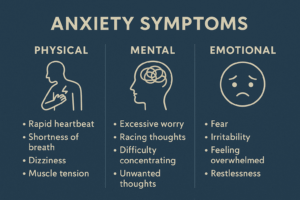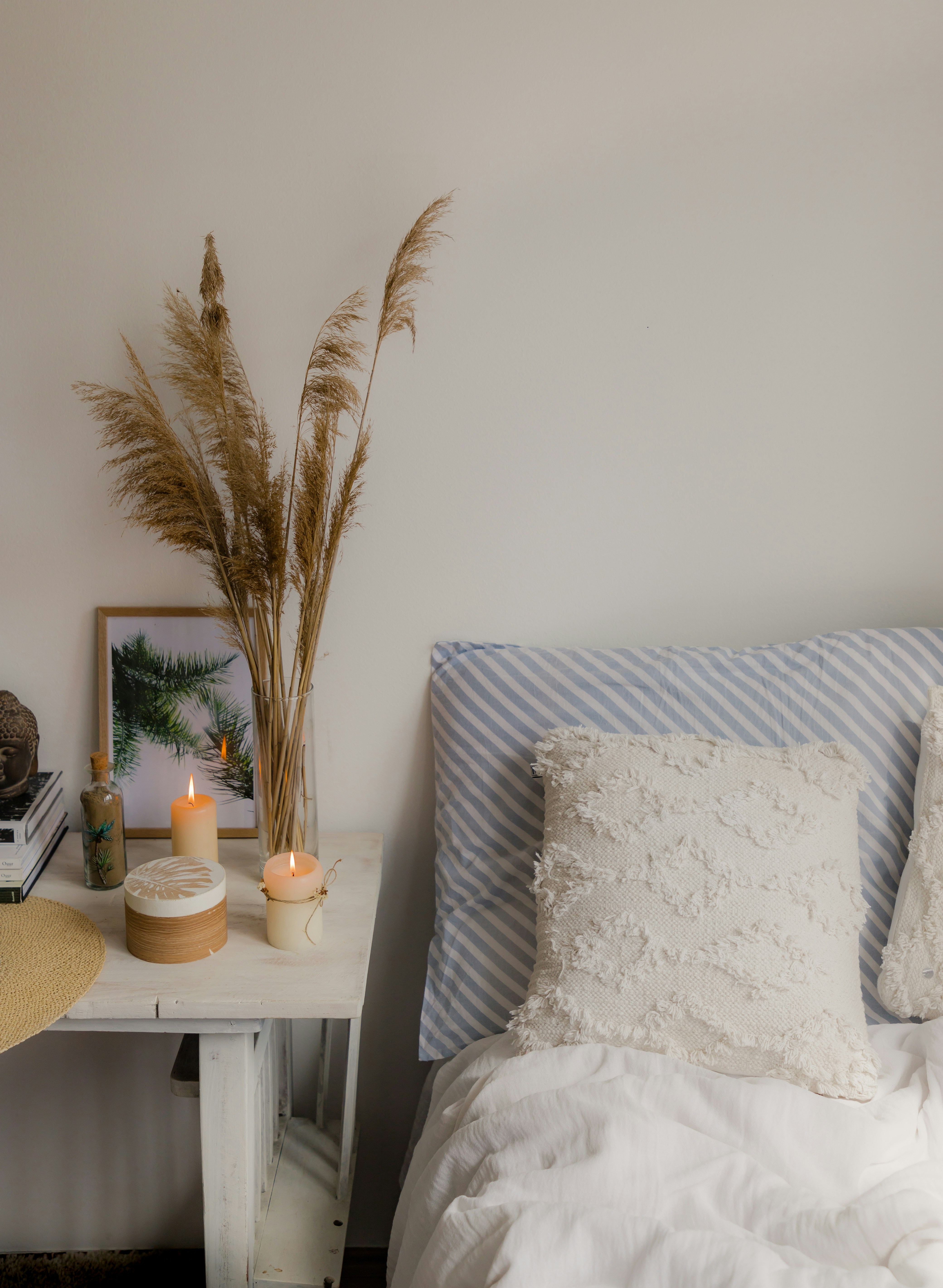
Anxiety is a common but overwhelming emotional response to perceived stress, uncertainty, or threat. For many adults in Washington, anxiety goes beyond occasional worry—it becomes a persistent, life-disrupting force. From physical symptoms like muscle tension and fatigue to emotional challenges like constant overthinking or fear of the worst, anxiety can impact every corner of your daily life.
While therapy remains one of the most effective ways to manage and reduce anxiety, self-care is the bridge that allows therapeutic insights to become long-lasting change. Integrating a structured self-care routine into your daily life can deepen the impact of therapy, support emotional regulation, and help you feel more in control.
In this guide, we’ll explore how to build a self-care routine that supports anxiety treatment, with practical tools tailored to your emotional, mental, and physical health. If you’re new to therapy or already working with an anxiety therapist in Washington, this article offers actionable steps to help you feel better—one habit at a time.
Why Self-Care Matters When Managing Anxiety

Anxiety can keep your body and mind in a state of constant alert. When left unchecked, this hyperarousal leads to fatigue, irritability, sleep difficulties, and an inability to focus. While cognitive and behavioral therapies such as CBT (Cognitive Behavioral Therapy), ACT (Acceptance and Commitment Therapy), and Mindfulness-Based Stress Reduction (MBSR) are proven to reduce symptoms, your daily behaviors either reinforce or undermine their effects.
Self-care is more than relaxation—it’s a form of mental health maintenance. It allows the nervous system to reset, reinforces therapeutic tools between sessions, and helps you feel more grounded in your day-to-day life.
In Washington, where many people balance demanding jobs, family responsibilities, and fast-paced tech life, consistent self-care isn’t a luxury. It’s a necessity for mental wellness.
Key Principles for Creating an Anxiety-Supportive Self-Care Routine
Before diving into specific techniques, it’s important to build your self-care strategy on four key principles:
- Consistency over intensity: A 5-minute daily practice is more effective than an hour-long effort done once a month.
- Personalization: Not every activity works for every person. Choose what feels authentic to your lifestyle and values.
- Sustainability: Avoid overwhelming goals. Start small and build gradually.
- Emotional alignment: Select activities that restore your sense of purpose and connection—not just those that “look” like self-care.
Self-care is a foundation that supports therapy, making your sessions more effective and your life more manageable.
How Anxiety Affects Your Whole Being

Anxiety disorders are the most common mental health concern in the U.S., and Washington state is no exception. You might be living with generalized anxiety, panic disorder, or social anxiety—each presents its own challenges. Regardless of the type, anxiety impacts both body and mind:
Mental/Emotional symptoms:
- Racing thoughts or persistent worry
- Catastrophic thinking (“What if everything goes wrong?”)
- Trouble concentrating
- Irritability
- Restlessness
Physical symptoms:
- Muscle tension
- Headaches
- Upset stomach
- Fatigue or insomnia
- Rapid heartbeat
- Sweating or trembling
Anxiety can disrupt daily functioning—from avoiding social situations to missing work or canceling plans. But with the right support system, including therapy and intentional self-care, you can reduce its grip on your life.
Self-Care Practices for Managing Anxiety
Here are several practical, evidence-based self-care strategies that can support your therapy work and help manage anxiety symptoms.
1. Emotional Self-Care: Understanding and Soothing Your Feelings
- Journaling
Take a few minutes each day to write about how you’re feeling. Journaling helps you notice patterns, reduce emotional overwhelm, and gain perspective. - Emotional Regulation Techniques
Try 4-7-8 breathing, progressive muscle relaxation, or grounding exercises that use your five senses to pull you back into the present moment. - Practice Self-Compassion
Treat yourself with kindness, especially during anxious moments. Instead of criticizing yourself for struggling, speak to yourself as you would a close friend: gently and with care.

2. Mental Self-Care: Calming the Anxious Mind
- Mindfulness Meditation
Set aside 5–10 minutes a day for mindfulness practice. Focus on your breath, your surroundings, or the sensations in your body without judgment. - Cognitive Reframing
Challenge anxious thoughts by asking:- “What’s the evidence this fear is true?”
- “What’s another way to look at this situation?”
- “What would I tell a friend who felt this way?”
- Limit Information Overload
Social media and 24/7 news can keep your nervous system on edge. Set time limits and take digital detox breaks to reset.
3. Physical Self-Care: Supporting the Body to Calm the Mind
Exercise helps lower cortisol (the stress hormone) and boosts mood-enhancing chemicals like endorphins. You don’t need a gym membership—any movement counts.
Try:
- A brisk 20-minute walk around your Seattle neighborhood
- Yoga or stretching at home
- Swimming, biking, or dancing
- Gardening or hiking in Washington’s beautiful outdoors
Other essential physical care routines include:
- Sleep hygiene: Set a regular sleep-wake cycle, avoid screens before bed, and create a calming bedtime routine.
- Nutrition: Prioritize balanced meals with complex carbs, protein, and healthy fats. Limit sugar, caffeine, and alcohol.
- Hydration: Dehydration can increase anxiety symptoms. Keep a water bottle with you throughout the day.

4. Social Self-Care: Building Connection, Not Isolation
Anxiety often urges you to withdraw, but meaningful connection is a buffer against stress.
- Nurture Relationships
Stay in touch with supportive friends or family. Reach out for a phone call, lunch, or a walk. You don’t need to explain everything—just be present together. - Set Healthy Boundaries
Learning to say “no” is a form of self-respect. Protect your energy and avoid emotionally draining people or situations. - Consider Support Groups
Talking to others who are also managing anxiety can help you feel less alone. Many Washington-based therapists and clinics offer group therapy or peer-led support groups.
Integrating Self-Care with Therapy
Therapy becomes even more effective when you bring self-care into the conversation. Ask your therapist to help you build a routine that supports your progress between sessions.
Try:
- Logging self-care activities in a journal
- Noticing which days your anxiety peaks and adding calming practices then
- Reviewing what’s working with your therapist regularly
- Using self-care as a tool to regulate between sessions when you feel overwhelmed

Overcoming Common Self-Care Roadblocks
Even when we know what to do, barriers can get in the way of self-care. Here’s how to address the most common challenges:
- “I don’t have time.”
Start with just 5 minutes. Even a single deep-breathing session or a 10-minute walk makes a difference. - “I feel guilty.”
Taking care of yourself isn’t selfish—it’s how you maintain the strength to care for others and show up for your responsibilities. - “I don’t know where to start.”
Pick one activity—like a nightly wind-down routine—and stick with it for a week. Build slowly.
Sample Daily Self-Care Routine for Anxiety
Here’s a gentle framework to help you stay balanced throughout the day:
Morning:
- 2 minutes of deep breathing upon waking
- Mindful shower with calming scents
- Nutritious breakfast (no screens)
- Review your schedule with compassion
Midday:
- Outdoor walk (even for 10 minutes)
- Unplugged lunch
3-minute journal check-in
Afternoon:
- Light stretching or quick workout
- Text or call a supportive friend
- Challenge one anxious thought
Evening:
- Light, screen-free dinner
- Relaxing activity (reading, music, drawing)
- Nighttime routine with deep breathing or gratitude journaling


When to Seek Professional Help
If anxiety is interfering with your ability to live your life—going to work, leaving the house, connecting with others—it may be time to talk to a mental health professional.
A licensed anxiety therapist in Washington can:
- Help you identify triggers and thought patterns
- Provide tools to reduce symptoms and regain balance
- Create a personalized treatment plan
- Support your self-care goals with evidence-based strategies
You don’t need to wait until things feel unmanageable. Therapy is a safe space to explore, heal, and grow.
Healing Happens Step by Step
Managing anxiety is not about perfection—it’s about progress. You may not feel instant relief, but by consistently supporting yourself with simple, intentional self-care practices, you create the conditions for long-term emotional resilience.
Pairing therapy with self-care isn’t just a strategy—it’s a lifestyle change that puts you back in the driver’s seat of your mental health.
If you’re ready to begin or deepen your journey to managing anxiety, Golden West Counseling is here for you.
We specialize in helping adults across Washington find relief, build confidence, and feel more grounded through evidence-based therapy and compassionate care.
Book your first appointment today. You deserve support, healing, and peace—starting now.


